
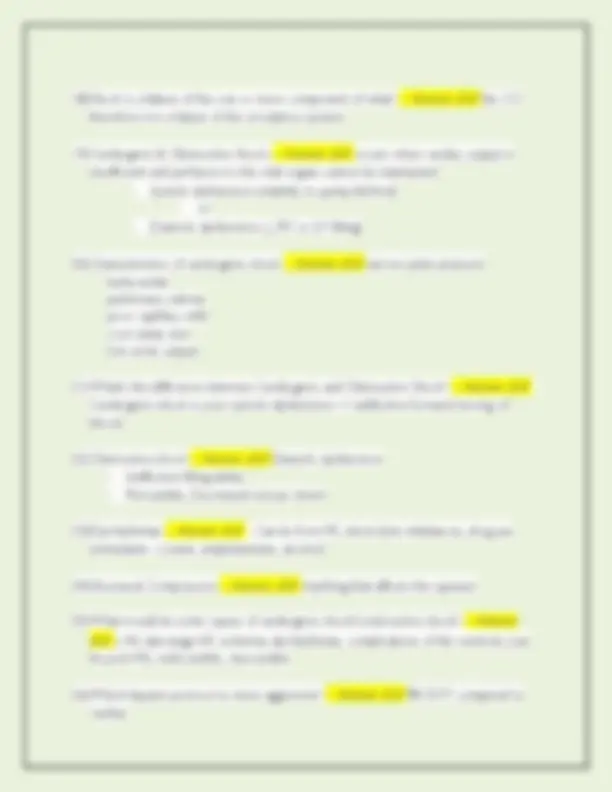
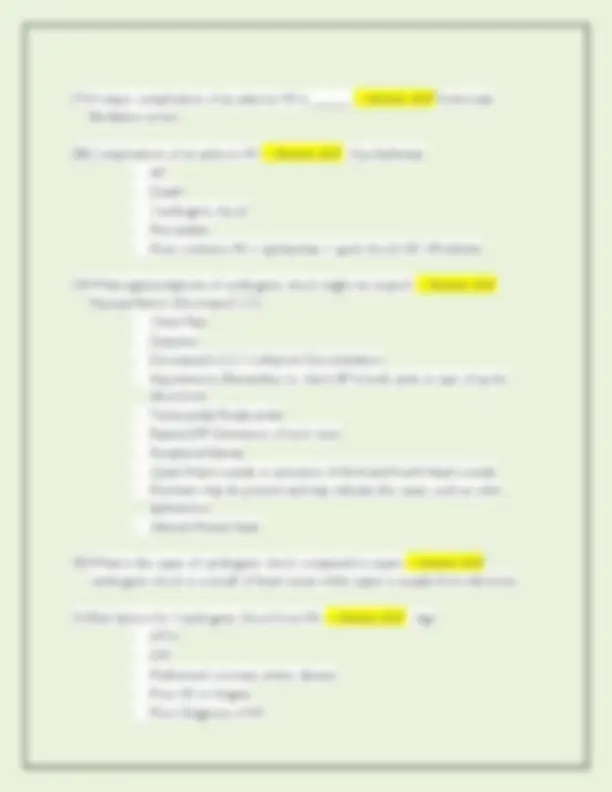
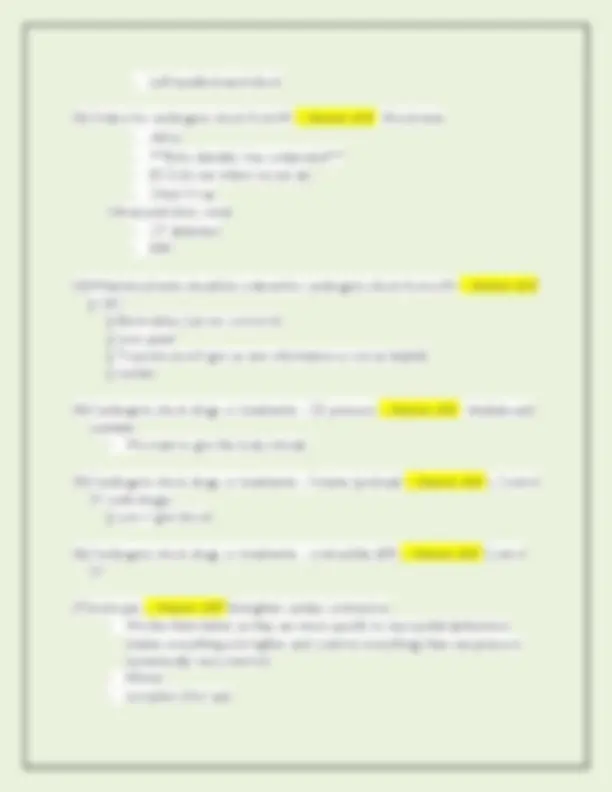
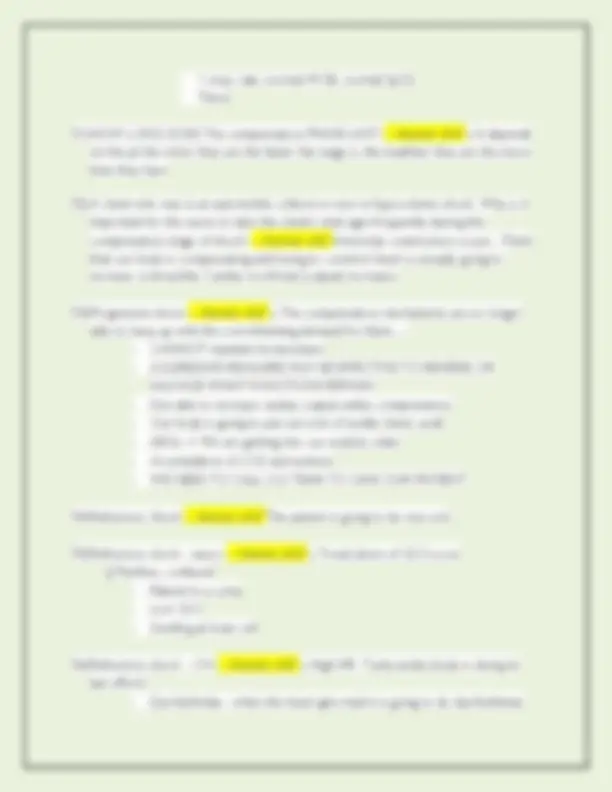
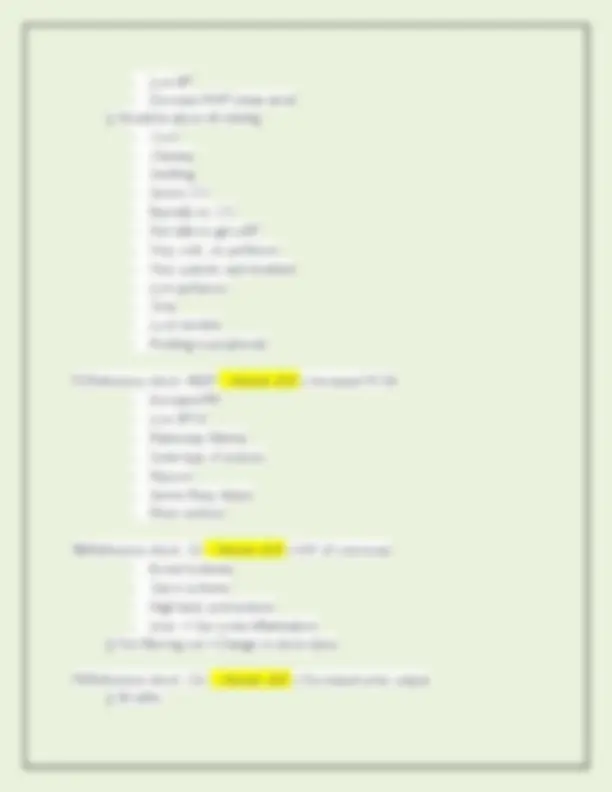
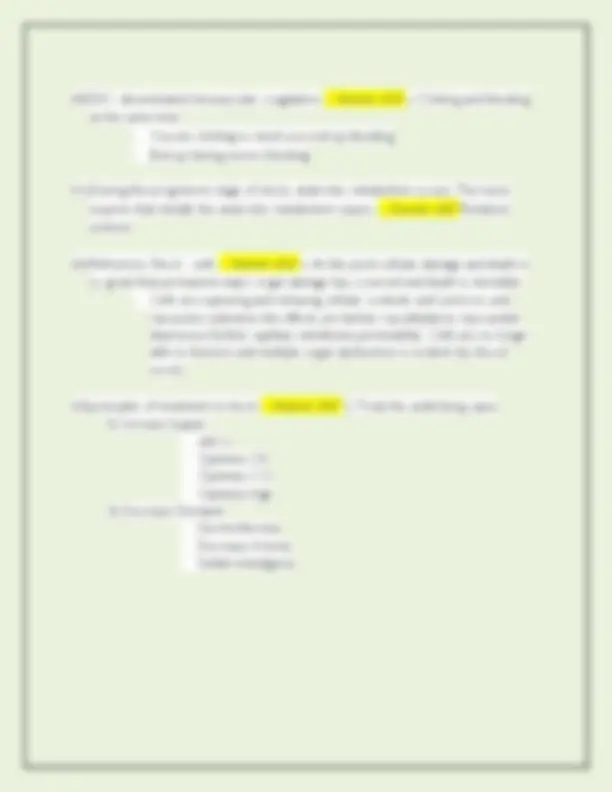


Study with the several resources on Docsity

Earn points by helping other students or get them with a premium plan


Prepare for your exams
Study with the several resources on Docsity

Earn points to download
Earn points by helping other students or get them with a premium plan
Community
Ask the community for help and clear up your study doubts
Discover the best universities in your country according to Docsity users
Free resources
Download our free guides on studying techniques, anxiety management strategies, and thesis advice from Docsity tutors
This study guide provides a comprehensive overview of shock, a critical medical condition characterized by decreased tissue perfusion and impaired cellular metabolism. It delves into the different types of shock, including hypovolemic, cardiogenic, obstructive, and distributive shock, exploring their causes, symptoms, and treatment approaches. The guide also examines the stages of shock, from the initial stage to the refractory stage, highlighting the importance of early recognition and intervention. It includes numerous questions and answers related to shock, providing valuable insights for students in the nursing field.
Typology: Exams
1 / 10

This page cannot be seen from the preview
Don't miss anything!







· ↑ resp. rate; normal WOB, normal SpO · Thirst